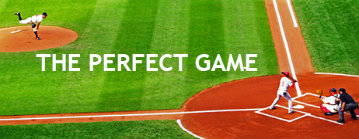Tom Carpenter, director of Sustainability Services
Remember the last professional ballgame you attended? Maybe you had a soda or beer, hotdog,
or some nachos? That food all came in some kind of single-use container, made of materials we
in the waste industry are all familiar with — plastic, polystyrene, paper, foil, etc. Now after use,
do you remember if you had options on where to possibly recycle or dispose them?
Let me walk you through an example of my ideal sports experience.
First, when I walk through the gate, the program I’m handed is printed on high-quality post-consumer
recycled paper. I know this because it says so right on the program, and there are signs around the
venue that tell me where to recycle the program if I don’t want to take it home.
While waiting for the game to start, and throughout the game itself, both the announcers and leaderboards
(which use LED lights of course!) remind fans how the stadium is deeply committed to sustainability.
How they use renewable energy, donate food, partner with local charities to reuse materials, compost,
recycle, collect e-waste, plant trees, conserve water, and support public transportation.
All of these initiatives directly benefit me, my family and our community, and I appreciate the effective ways
the stadium has found to communicate them. My kids love the metrics used to show improvement between
games. After all, everyone likes to keep score.
When we’re ready for a snack — we get at a discount because we took public transportation to the stadium — we
have a choice of healthy, local food options alongside our stadium favorites. Signs and messaging on the cups
tell us they are compostable, and that the napkins are made from 100 percent recycled paper. The bins near the
exits are paired and it is easy for us to separate plastic and aluminum containers, as well as compostable items.
During an intermission, fans are told how to text their feedback on some new sustainability initiatives and if we
tweet about it we can win free tickets to upcoming games. Lastly, when I use the restroom, there are high-powered
dryers to dry my hands, or paper towels go into a bin that lets me know the paper will be composted.
Sound like a dream? Well, it’s not. It’s the result of a Zero Waste Program designed and implemented by WM
Sustainability Services and a committed team that’s made up of sport and stadium owners, facility managers,
vendors, employees and volunteers. The program allows us to apply our known best practices, but also really
get to know how stadiums operate differently from their competition.
This way we can tailor the program to fit their individual needs, not to mention the expectations of their fans,
sponsors and employees. It’s a winning combination.
